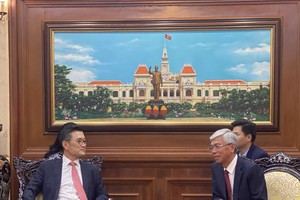The first trucks supplying NATO troops in Afghanistan crossed the border from Pakistan on Thursday after Islamabad ended a seven-month blockade.

Pakistan closed overland routes for NATO convoys into its war-torn neighbour after a botched US air raid in November killed 24 Pakistani soldiers at a border post, plunging ties between the "war on terror" allies to a new low.
Following a bitter seven-month standoff, Islamabad agreed to reopen the routes on Tuesday after US Secretary of State Hillary Clinton said sorry for the air strike deaths.
Three trucks loaded with mineral water were cleared to enter Afghanistan from the Chaman border post in Pakistan's remote province of Baluchistan on Thursday, Chaman district customs official Abdul Razaq Imran told AFP.
"Three NATO containers parked in customs house Chaman for the last seven months have crossed into Afghanistan from the Chaman border," he said.
"We cleared their documents and allowed them to cross the border after we received a letter from the Federal Board of Revenue about the restoration of the NATO supply."
Malik Hukam Dad, an official from Pakistan's Federal Investigation Agency at Chaman, confirmed three trucks had been cleared and two had already crossed the border.
The majority of trucks for the NATO convoys have spent the past seven months standing idle in the Arabian Sea port of Karachi.
Officials there said it was likely to be several days before they set off as measures to protect the containers from attack by Taliban militants were still being worked out.
"The security situation is very bad so we cannot take any risks. We will be providing every possible security to the NATO truckers," said Sharfuddin Memon, a senior home department official in Sindh province, of which Karachi is the capital.
The Pakistani Taliban have vowed to attack NATO supply trucks, and haulage associations have voiced fears for the safety of their drivers.
The land routes into Afghanistan are vital as the United States and its NATO allies withdraw troops and equipment built up in Afghanistan since the 2001 invasion.
The blockade had forced the United States and its allies to rely on longer, more expensive northern routes through Central Asia, Russia and the Caucasus, costing the US military about $100 million a month, according to the Pentagon.
As part of the deal to open the routes, which followed months of negotiations, Washington will release about $1.1 billion to the Pakistani military from a US "coalition support fund" designed to reimburse Pakistan for the cost of counter-insurgency operations.
Islamabad, a key but wary US ally in the fight against Taliban militants, had steadfastly insisted on an apology for the November attack, but Washington had previously only expressed regret.
























